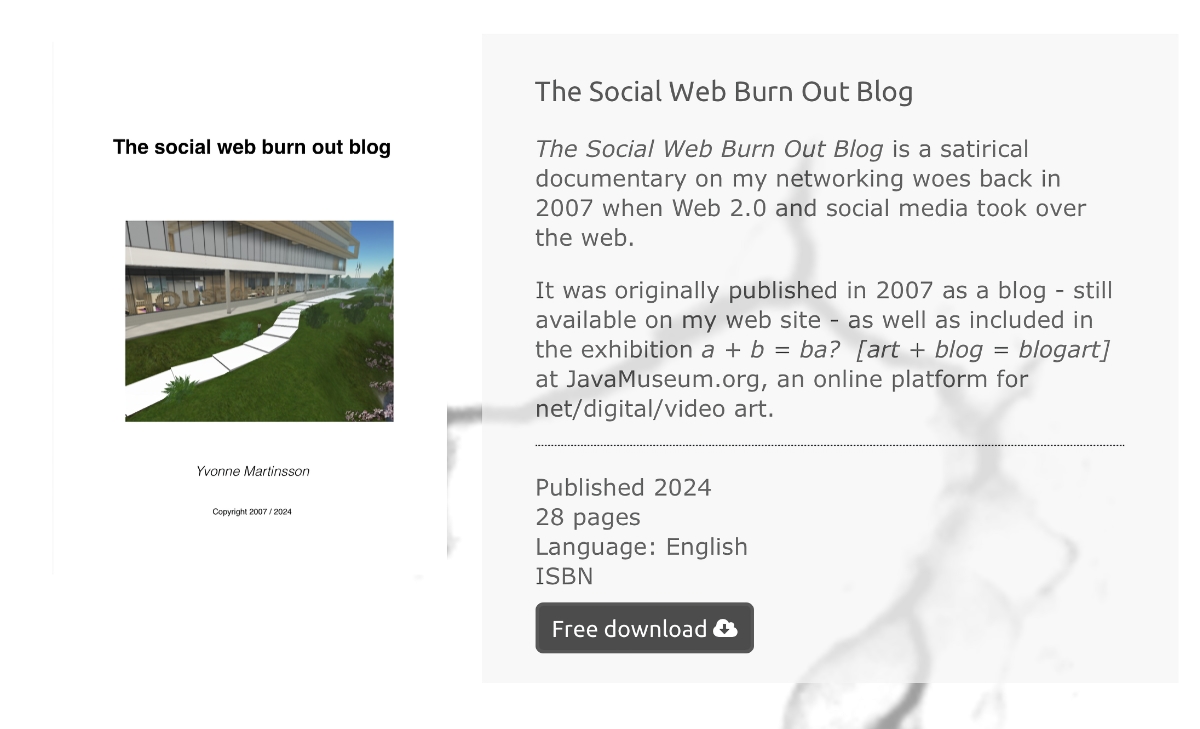gerald murnane’s inland: stones / fireworks
In Gerald Murnane’s Inland, the writer has an Other, a ghost. He is his double, a ghost-writer, writing in a “heavy-hearted Magyar” that is foreign to him, and to us (5). The language of the writer (English) is thus a translation that embeds a foreign language, which is never seen on the pages of Inland, but which are inscribed in the signs of Inland and in the stones of the graveyard he likes to visit. Always already double, written in both “heavy-hearted Magyar” and English, the text needs another translation, another doubling for its deciphering. It needs its editor and translator, its reader, another Other, Anne Kristaly Gunnarsen who “sometimes visits the graveyards” where the signs of Inland are engraved, and who “sometimes finds in graveyards a few stems of a grass or a small flowering plant” iridescent among the stones (15).
The reader/editor sends him back sounds, with or without signification, from the American prairie for him to digest: “Little bluestem; ironweed; fleabane; boneset, wolfberry; chokeberry” (5). Without having been able to consult The Life of Prairies and Plains referred to by the writer (if it exists!), two dictionaries I have looked in list fleabane, boneset and chokeberry. Little bluestem, ironweed and wolfberry are not listed, but phonologically related flowers are: blueweed, ironwood, and wolfsbane. Thus, wherever translation is at work the sounds of language are liable to corruption and, as Murnane suggests, all writing/reading is a translation, an interaction between writer/the Other/reader, and, consequently, something slips leaving the sign in a state of indeterminacy, hovering in-between in “stems of a grass or a small flowering plant”, in motion…
There is a ‘stony’ quality about the writer’s language that echoes the his native “sounds of heavy-hearted Magyar” (5). The signs the writer puts on paper seem to have been chiselled out with the simplicity of primitive and aboriginal rock carvings, or with the gravity of the epitaphs engraved on the stones of the graveyard he likes to visit. Grave, yet simple, such are the signs of Inland, written on the stones of the dead. Naked.
Written in a graveyard, in a graveyard of signs that is his library, the gravitational pull of language gravitates, it would seem, towards the enclosure of language within its own tomb. Silence. Death. But in front of death we, as readers, are simply stripped of our sociality. Naked. The graveyard, for us, is a land made out of the bare bones of language. It is the language of the dead.
Yet, the writer tells us to “recite” the sounds of the flowers of the wasteland that is the graveyard, so that we can hear “the nodding of tiny blue and scarlet flowers” (5). The space of Inland is, in other words, a double space. On the one hand, a space of signs engraved on stones and, on the other, a space of sounds. Recite, the writer says, and the stones start singing. Give the stones a rub, let the signs double themselves through the frictions of stones rubbed. The naked turns erotic, vibrating with the inland of our imagination.
How does this recitation work? By means of the most archaic of devices, that is, through incantation, conjuring the invisible land of Inland. Chanting and repeating, adding, shifting, doubling and rubbing the stones of the graveyard is the writer’s handicraft that will set our imagination vibrating, in ecstasy, in the ex-stasis of the signs chiselled out in the graveyard. For instance, the writer tells us successively that Anne Kristaly Gunnarsen tells the writer that she wants to give his texts to the men and women who cannot see the Great Alfold,
but who want to breathe with ecstasy, through the curtain of the falling rain, the scent of invisible yet enduring flowers with mournful-sounding Magyar names(16).
And the writer says that he himself never saw America nor ever will see,
but I wanted to breathe with ecstasy, through the curtain of falling rain, the scent of invisible yet enduring dream-prairies (27).
And the writer of books pretending to be a man from Szolnok County who has never seen Tolna County, Melbourne etc.,
yet he wanted to breathe with ecstasy, through the curtain of the falling rain, the scent of invisible yet enduring ghosts of places (28).
Chanting brings ecstasy. The ex-stasis of signs. The ecstasy of our invisible inlands (imagination, psychic recesses, death, sexuality, and other possible inlands). Fireworks.
© yvonne martinsson 1995, 2002
Sources
Murnane, Gerald. Inland. London: Faber & Faber, 1990.

